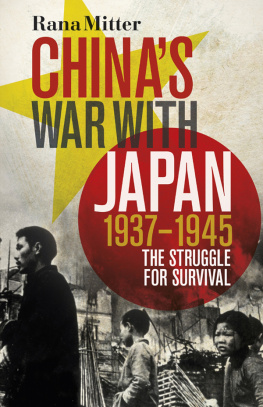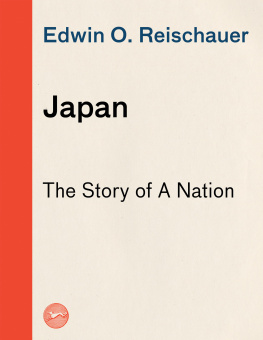Risk and Securitization in Japan
Since the early 1990s, there has been an emphasis in international relations theory on the shift from a Cold War rationality of threat, to a post-Cold War rationality of risk. However, in Risk and Securitization in Japan, 194560, Piers R. Williamson argues that this assumption of a shift in rationality stems from a fundamental failure to distinguish between the concepts of threat and risk.
By clarifying the concepts of threat and risk, this book challenges the prevailing hypothesis of a shift from threat to risk with the end of the Cold War, and in doing so presents a new explanatory model of risk that can be applied to Japan and elsewhere. In turn, it proposes that a full comprehension of the concept of risk can generate new understandings of political processes that would otherwise remain obscured. Williamson demonstrates how this can be done, proffering a new perspective on Japanese security discourse, especially the controversy between, on the one hand, early Japanese governments, prime ministers, Diet members and those Japanese who drafted the Japanese proposal for the new constitution, and, on the other hand, intellectuals, peace movement activists, proponents of unarmed neutrality and the USJapan security treaty.
Including extensive archival material in the form of speeches, public statements and government documents, this book will be of huge interest to students and scholars of Japanese politics, international relations and history alike.
Piers R. Williamson is an Associate Professor in the Research Faculty of Media and Communication at Hokkaido University, Japan.
Sheffield Centre for Japanese Studies / Routledge Series
Celebrating 50 Years of Japanese Studies at
The University of Sheffield, 19632013
Series Editor: Glenn D. Hook
Professor of Japanese Studies, University of Sheffield
This series, published by Routledge in association with the Centre for Japanese Studies at the University of Sheffield, both makes available original research on a wide range of subjects dealing with Japan and provides introductory overviews of key topics in Japanese Studies.
| The Internationalization of Japan Edited by Glenn D. Hook and Michael Weiner |
| Race and Migration in Imperial Japan Michael Weiner |
| Japan and the Pacific Free Trade Area Pekka Korhonen |
| Greater China and Japan Prospects for an economic partnership? Robert Taylor |
| The Steel Industry in Japan A comparison with the UK
Hasegawa Harukiyo |
| Race, Resistance and the Ainu of Japan Richard Siddle |
| Japans Minorities The illusion of homogeneity
Edited by Michael Weiner |
| Japanese Business Management Restructuring for low growth and globalization
Edited by Hasegawa Harukiyo and Glenn D. Hook |
| Japan and Asia Pacific Integration Pacific romances 19681996
Pekka Korhonen |
| Japans Economic Power and Security Japan and North Korea
Christopher W. Hughes |
| Japans Contested Constitution Documents and analysis Glenn D. Hook and Gavan McCormack |
| Japans International Relations Politics, economics and security Glenn D. Hook, Julie Gilson, Christopher W. Hughes and Hugo Dobson |
| Japanese Education Reform Nakasones legacy
Christopher P. Hood |
| The Political Economy of Japanese Globalisation Glenn D. Hook and Hasegawa Harukiyo |
| Japan and Okinawa Structure and subjectivity Edited by Glenn D. Hook and Richard Siddle |
| Japan and Britain in the Contemporary World Responses to common issues Edited by Hugo Dobson and Glenn D. Hook |
| Japan and United Nations Peacekeeping New pressures, new responses
Hugo Dobson |
| Japanese Capitalism and Modernity in a Global Era Re-fabricating lifetime employment relations
Peter C. D. Matanle |
| Nikkeiren and Japanese Capitalism John Crump |
| Production Networks in Asia and Europe Skill formation and technology transfer in the automobile industry
Edited by Rogier Busser and Yuri Sadoi |
| Japan and the G7/8 19752002
Hugo Dobson |
| The Political Economy of Reproduction in Japan Between nation-state and everyday life
Takeda Hiroko |
| Grassroots Pacifism in Post-War Japan The rebirth of a nation
Mari Yamamoto |
| Interfirm Networks in the Japanese Electronics Industry Ralph Paprzycki |
| Globalisation and Women in the Japanese Workforce Beverley Bishop |
| Contested Governance in Japan Sites and issues Edited by Glenn D. Hook |
| Japans International Relations Politics, economics and security Second edition Glenn D. Hook, Julie Gilson, Christopher W. Hughes and Hugo Dobson |
| Japans Changing Role in Humanitarian Crises Yukiko Nishikawa |
| Japans Subnational Governments in International Affairs Purnendra Jain |
| Japan and East Asian Monetary Regionalism Towards a proactive leadership role?
Shigeko Hayashi |
| Japans Relations with China Facing a rising power
Lam Peng-Er |
| Representing the Other in Modern Japanese Literature A critical approach Edited by Rachael Hutchinson and Mark Williams |
| Myth, Protest and Struggle in Okinawa Miyume Tanji |
| Nationalisms in Japan Edited by Naoko Shimazu |
| Japans Security Policy and the ASEAN Regional Forum The search for multilateral security in the Asia-Pacific
Takeshi Yuzawa |
| Global Governance and Japan The institutional architecture Edited by Glenn D. Hook and Hugo Dobson |
| Japans Middle East Security Policy Theory and cases
Yukiko Miyagi |
| Japans Minorities The illusion of homogeneity Second edition Edited by Michael Weiner |
| Japan and Britain at War and Peace Edited by Nobuko Kosuge and Hugo Dobson |
| Japans National Identity and Foreign Policy Russia as Japans other
Alexander Bukh |
| Japanese Cinema and Otherness Nationalism, multiculturalism and the problem of Japanesenesss
Mika Ko |
| Asian Regionalism and Japan The politics of membership in regional diplomatic, financial and trade groups |










